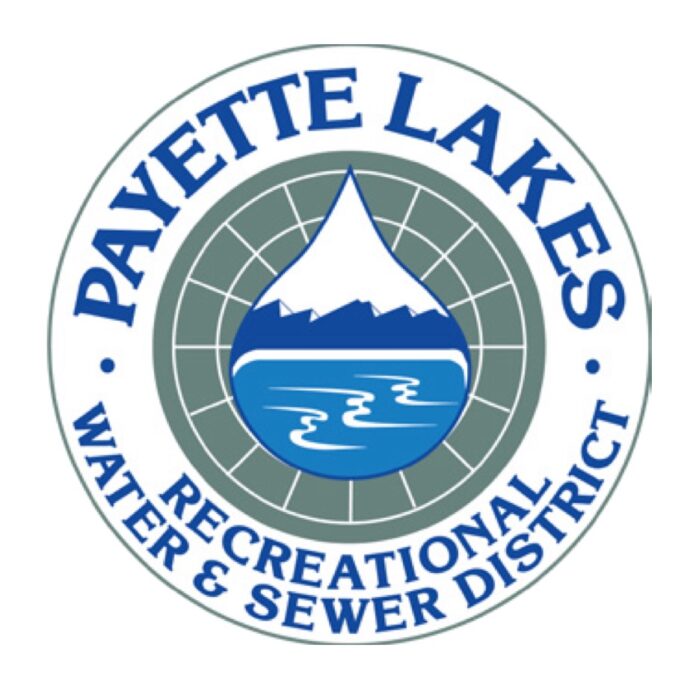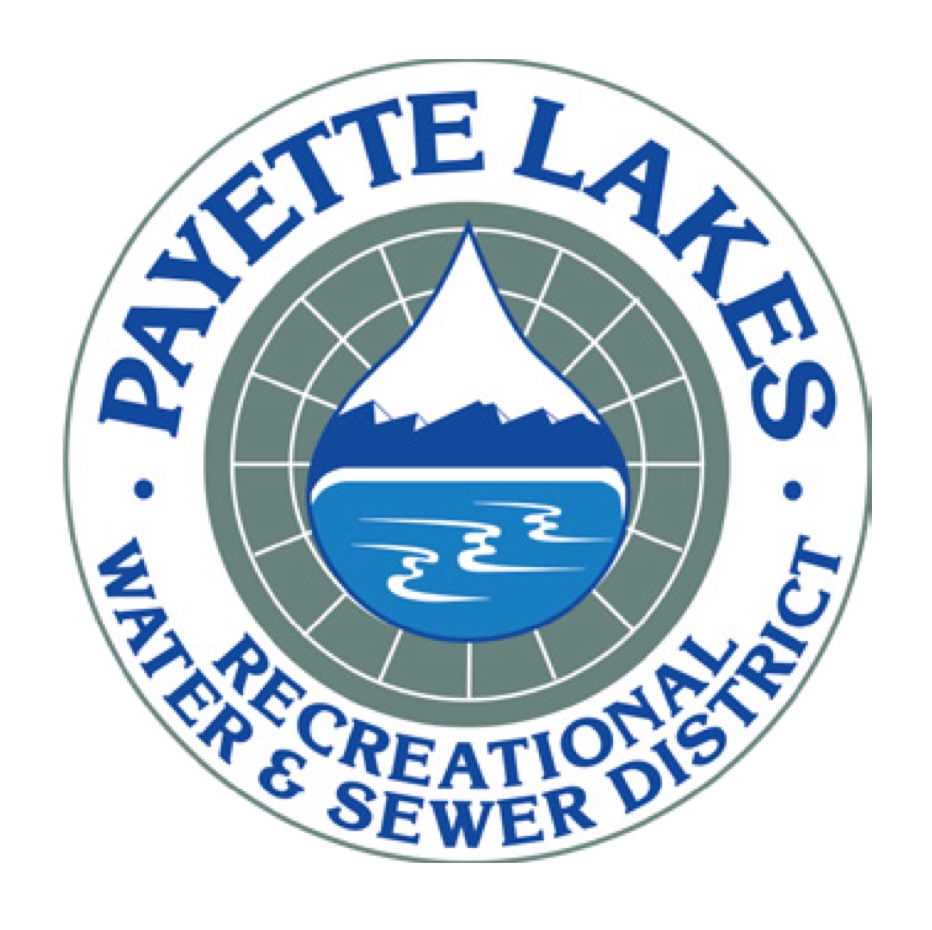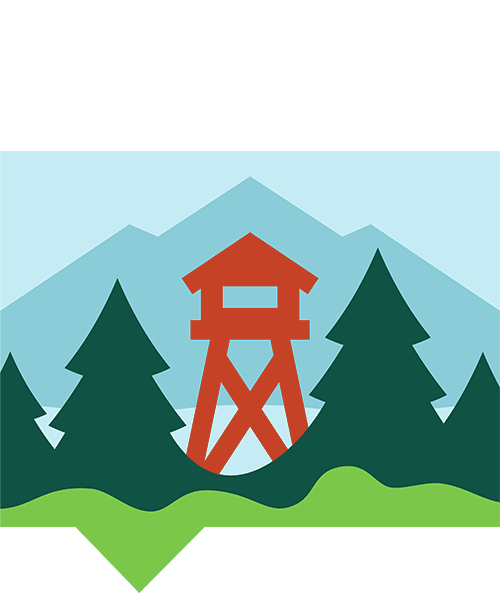A contested election is being held on May 20 for the first time in the 54-year history of the Payette Lakes Recreational Sewer and Water District.
The election features six candidates vying for two seats on the district’s board of directors, which has a total of five members. Dallas Young is running unopposed for re-election to her seat, while seats held by Bill Weida and Ellen Holm, who chairs the board, are not up for election until 2027.
Ken Patterson, who was appointed to the board in 2019 and unopposed for a four-year term in 2021, is challenged by McCall residents Todd Fereday, Candi Millar, and Bryce Henson. The candidate with the most votes will be elected to a six-year term that begins June 18. Patterson’s seat represents Zone 2, which takes in much of southwestern McCall.
Meanwhile, newcomers Russ Fogel and Brian Renstrom will seek a four-year term for a seat currently held by Mark Larson for Zone 3, which covers most of southeastern McCall. Larson is not eligible to seek re-election because he was appointed to the seat to fill a vacancy on the board despite not living in Zone 3.
Early voting is open until May 16 at 5 p.m. at the Valley County Courthouse in Cascade. Otherwise, votes can be cast from 8 a.m. to 8 p.m. on May 20 at Idaho First Bank in McCall.
Valley Lookout sent a list of questions to each candidate regarding their candidacy. Their exact responses are published below.
The questions posed to each candidate were identical, except for those posed to Ken Patterson. The questions posed to Patterson were adjusted to reflect his status as an incumbent. Also, Patterson’s responses were transcribed from a phone interview he completed with Valley Lookout. Every other candidate provided written responses.
Ken Patterson – Zone 2 incumbent
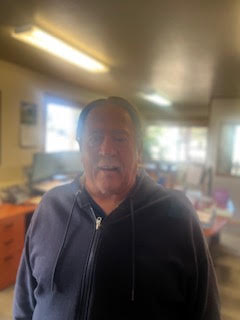
What motivated you to seek re-election to the sewer district board?
I’ve been on it for the last six years. I really enjoyed it, and it’s very interesting. We have some work that needs to be done and I want to continue and finish some subjects that we got going, like the storage pond liner. That’s a that’s a big one to me.
What are you proud of from your tenure on the board so far?
I believe the district is working hard and heading down the right path to get the system running more efficiently all the time. We were handed a lot of problems when we took it over. It was before I got on theboard. But I’ve seen pictures of the stuff inside the city in the sewer lines. If we get all that fixed, we would increase our capacity in the ponds. I’m not sure what percentage, but there’s a percentage that we get at the ponds that is water, just from leaky pipes and everything else getting into our pipes because they’re cracked and broken.
Looking ahead, do you have any specific goals you would like to achieve, or policy positions you would like to represent on the board?
No, not really. I mean, it’s all pretty much laid out in our master plan. We need to continue working the master plan. It’s a work in progress.
Growth in McCall is inherently linked to the sewer district because all development starts with sewer connections. What role, if any, do you think the district should play in promoting affordable housing projects?
I don’t think there’s anything. We really don’t have any say in that. I mean, you know, there’s certain areas that could be approved. But we don’t have the capacity for it, and that’s all in the master plan.
At the same time, the sewer system needs tens of millions in improvements just to meet current capacity needs. How do you think the district should balance the system’s needs with the community’s need for housing?
Without donors like you, this story would not exist.
Make a donation of any size here
I don’t have an answer for that because it all depends on what we can get done. It depends if we get this bond passed we got right now. If it passes, we’re going to be able to get a lot more done. We’re going to get be able to fix a lot of the pipes from the initial runoff from the I&I (inflow and infiltration). We got to take care of what we got now, before we can add on.
What previous experience do you have that you believe would suit you well on the district board?
I was on the Big Payette Lake Water Quality Council for 10 years and the Valley County Waterways Advisory Group for 25 years. I was in the Rotary Club for 20 years, the McCall Fire Department for 30 years. So, I’m involved. There’s no doubt about that.
What should voters know about you before casting their vote?
I’ll work. I’ll do what I’ve been doing for six years, working for the future, working for the citizens of McCall.
Please provide your age, primary residency, and number of years owning property within the district.
74 years old, moved here in 1976 and lived in the same house ever since.
Anything else not covered in the questions above?
No.
Zone 2 challengers: Candi Millar, Todd Fereday, Bryce Henson
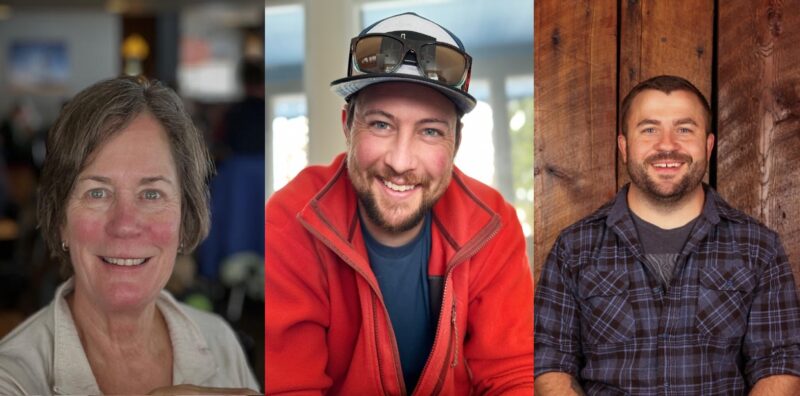
What motivated you to seek election to the sewer district board?
Millar: I am concerned with how the area is growing and the need for developing a service plan for the District that is responsive to City and County comprehensive plans.
Fereday: Growing up in McCall nearly my whole life and coming back after 7 years of living in Boise, I have seen many changes to our community and surroundings. My motivations lie in being involved and engaged with my hometown community. With the new Area of Impact laws that have been changed by the State, I feel now is the best time to get involved in any way I can. Our sewer district is definitely one that I would love to understand more about and learn how to make it an outstanding service to the community.
Henson: I grew up just north of here in the small town of Juliaetta, Idaho, and now, as a parent of two young children, I’m excited to get involved in the McCall community. I’ve always been drawn to roles where I can make a meaningful, positive impact. As I learn more about this area, it’s clear that growth is inevitable—and I want to help guide that growth in a thoughtful, sustainable way. Serving on the sewer board is an opportunity to contribute to the essential infrastructure that supports smart development and protects the quality of life for current and future residents.
Do you have any specific goals you would like to achieve, or policy positions you would like to represent on the board?
Millar: There are two specific policy areas I would like to address if elected to the Board. The first is to reexamine the density map the District uses to determine the number of connections permitted in certain zones. The map needs to be eliminated as an independent decision-making tool and the District’s service plan should be brought into alignment with current City and County land use plans. I also believe that the District has a responsibility to communicate its capacity issues to City and County government as their plans are updated. The second policy area addresses how sewer improvements are funded. System-wide improvements should be funded by all ratepayers, as is the case with the proposed revenue bond improvements. Other improvements are only needed to expand the system to serve specific properties. These improvements may benefit multiple potential users over time, but the full cost is borne by the first property in need of service. Funding mechanisms should be considered that proportionately share the costs of those improvements among all the users who benefit over time.
Fereday: My goal if I’m elected to the board will be to have a larger understanding of the issues we face in times like we are living in now (i.e. community housing costs, water quality issues, Area of Impact laws.) Although we are a small town, we have huge decisions to make for our future, especially when it comes down to sewer needs combined with our drinking water source, which is Payette Lake.
Henson: One of my primary goals is to improve coordination between the sewer district, city planners and county officials. Effective communication and unified planning are essential if we want to address our community’s infrastructure challenges in a sustainable way. Without collaboration between these entities the existing issues will only grow more complex as this area continues to develop.
What problems do you see with the current board’s management of the district?
Millar: From my perspective, it is not the District’s management that is the issue, rather it is the current sewer connection and funding policies that need to be overhauled. I would also like to see more transparency in the District’s decision-making processes.
Fereday: There are no ‘problems’ I would like to specifically point out. Rather I’d like to remind every community member that no board is flawless and I seek to be an open, honest, hardworking individual that wants to know what exactly our community can do better to attain the ‘pristine destination’ that we all know as home.
Henson: In speaking with several members of the district, I’ve been impressed by their deep knowledge of the system’s infrastructure and history. However, I’ve also noticed a disconnect between the district and city officials, which I believe hinders our ability to plan effectively as a community.
There have been several rumors about developers and McCall city officials encouraging district residents to run for the board. Were you urged to run for a seat on the board? If so, why, and by whom?
Millar: I made an independent decision to run for the board based upon my qualifications, my experience and my love for this community.
Fereday: I was not urged by anyone to run for this position, but being a small business owner in the heart of McCall, I felt an obligation to at least try and serve my community in an election that we have never seen happen before. I also felt compelled to run because of the State’s law on Area of Impact that could potentially threaten a lot of businesses in town if zoning around our community is erased. McCall has always protected the most precious features of our beautiful land and we can’t lose sight of what makes our community what it is today.
Henson: As an electrical contractor, real estate agent and active member of our community, I have spoken with and have been approached by many people regarding this issue and have been encouraged to run. Once I became aware of our community’s water and sewer issues and how these issues affected growth and development, I became very interested in learning how I can help. In doing so, I’ve communicated with developers, PLWSD members, city planners, county commissioners, and community members alike to get their perspectives and share mine as well. I’ve come to learn that there are a lot of really great folks in our town that all bring a lot of value to the table. My decision ultimately came from a personal interest in helping address the infrastructure issues that directly impact growth and quality of life in our area.
Growth in McCall is inherently linked to the sewer district because all development starts with sewer connections. What role, if any, do you think the district should play in promoting affordable housing projects?
Millar: It appears that the District has assumed a de-facto growth management role for the area by independently establishing where and how connections can be made, regardless of adopted City and County plans and policies. Unfortunately, this creates a tension between the District and the City and County, who have land use authority. Rather than operating from a “density map” of its own making, the District should operate from a service plan that is responsive to City and County land use plans.
Fereday: The sewer district should play one of the biggest roles in creating affordable housing developments since they ultimately get to review any and all projects that will impact our sewer system and our community. Growth is inevitably coming, but the real concern is, how do we grow with purpose and validity? How do we sustain growth while simultaneously being stewards of our land in every way possible? Affordable housing is already a major issues for our community and we need to address it from every side that can be seen.
Henson: The district should support affordable housing by ensuring infrastructure is planned and available in areas identified for that purpose. While the district shouldn’t drive development, it should work collaboratively with city and country planners to make sure sewer access doesn’t become a barrier to meeting our community’s housing needs.
At the same time, the sewer system needs tens of millions in improvements just to meet current capacity needs. How do you think the district should balance the system’s needs with the community’s need for housing?
Millar: The District should focus on a service plan that is responsive to City and County land use plans. The City and County are required to consider service capacity (sewer, power, communications, public safety, transportation, etc.) in the development of their plans and the District should certainly have a role in plan development. Both the City and County have professional staff trained to advise elected officials as they consider all aspects of rational growth. Because they have the authority and qualified staff, they should lead the way in growth management that considers the need for housing. The District should provide a service plan that is responsive to these growth plans.
Fereday: At our current rate of growth, I feel our sewer system must be the highest of priorities. The current state of our sewer system must be improved if we are to continue to grow as a community. I know this may sound like housing needs are secondary, but I believe improving the sewer system we already have will answer a lot of questions on our housing issues that exist.
Henson: There’s no question this is a challenging issue. On the one hand we all know there are immediate upgrades we need to address just to serve our current community. On the other hand, we have to address our housing shortage. Again, I think this goes back to needing to work more cohesively with city planners and the community as a whole to figure out solutions. I am of the belief that how this is handled over the next 5 years will determine whether or not McCall will remain on the trajectory of an unaffordable resort town, or a vibrant community of folks who I hope will love this place as much as my family and I do!
What previous experience do you have that you believe would suit you well on the district board?
Millar: Before retiring in 2016, I was the Planning Director for Billings and Yellowstone County, Montana for sixteen years. Before that, I was the Planning Director for Big Timber and Sweetgrass County, Montana. These jurisdictions faced similar issues of providing public services and housing to rapidly expanding populations. After retirement I sat on and chaired the City of Olympia, Washington Planning Commission for 6 years and 2 years, respectively. The most important item the Olympia Commission dealt with was providing affordable infill housing. I began my career as a geologist with the Forest Service in the 1970s. In addition to my public service, I have owned and operated my own small businesses and worked in the private sector as both a geologist and land use planner.
Fereday: No prior experience on a board. I am a fifth generation growing up in Valley County and feel it is my duty to serve on this board.
Henson: With 20 years of experience as an electrician, I bring a practical, hands-on understanding of infrastructure systems and problem-solving in the field. I approach challenges with a straightforward, solution-oriented mindset. In addition, I am deeply committed to community service – I’m a member of McCall Chamber of commerce and the West Central Mountains Early Learning Collaborative where I have had the opportunity to collaborate with other working community members to improve our region.
What should voters know about you before casting their vote?
Millar: I have been a dedicated public servant for most of my professional career with experience in environmental analysis and land use and capital improvement planning. My private sector career emphasized project management, grant writing and regulatory compliance. I am running for the PLRWSD Board to ensure an environmentally safe, efficient and cost-effective sewer system and to promote transparent, coordinated, rational and planned growth.
Fereday: I’m a small family business co-owner that was born and raised in McCall. I value our community and all that we have to offer.
Henson: I’ve spent most of my life in Idaho, growing up in the small town of Juliaetta and attending trade school in LCSC. We have two beautiful kids, Maeven (3 years old) and Brooks (8 months old). We feel so grateful to be able to live and work in such a wonderful place among a community of people we love so much!
In addition to my background as an electrician and active community member, I excel at communication and collaboration—skills I believe are essential on the sewer board. I bring a fresh perspective and a strong desire to represent young families who are committed to building their future here in McCall.
Please provide your age, primary residency, and number of years owning property within the district.
Millar: I am 68 years old and live full time in McCall. My husband and I have owned our home in McCall since 2005.
Fereday: 36 years old
Henson: Age: 40, Residency: Broken Ridge townhomes, zone 2 Property ownership: 5 years (lived here for two)
Anything else not covered in the questions above?
Millar: No response.
Fereday: No response.
Henson: I would just like to convey the importance and gravity of this time in McCall’s history and how much our collective policies will shape the future of McCall. I recognize that growth is often difficult, not withstanding the sewer issues. However, when we look around at many of America’s most popular resort destinations, we find beautiful communities that once belonged to average folks, and now only a fortunate few can afford to live. My hope is that as a person with a young family and a strong desire to responsibly develop McCall, I can be an advocate for you.
Zone 3 Seat – Russ Fogel and Brian Renstrom
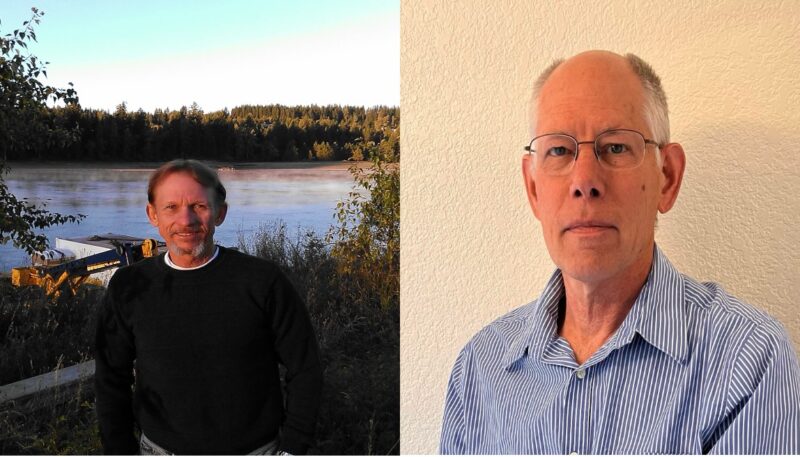
What motivated you to seek election to the sewer district board?
Fogel: I want to get involved in my community. An opening on this board came up so I started going to meetings in order to get familiar with the utility provider. These meetings have been very enlightening to some of the issues facing the district. These issues, both budgetary and policy in nature, are not insurmountable and my participation may be helpful, if for nothing else, a different point of view.
Renstrom: My family has always placed a priority on volunteerism and making our communities a better place to live. With my background in industrial facility design and plumbing systems the PLRWSD is a natural place for me to help.
Do you have any specific goals you would like to achieve, or policy positions you would like to represent on the board?
Fogel: My experience in Project Management and construction is lengthy and successful. My experience in the workings of public boards is not. Although I have attended 3 meetings, I don’t have enough information to be specific about current or future policy.I do have some thoughts which will be addressed in a couple of the following questions.
Renstrom: I have 4 priorities:
- System Reliability- The sewer system must work 24 hours a day, 7 days a week. Making sure that the right amount of equipment is in place, that it is well designed, and well maintained is the top priority. I have an extensive background in capacity studies and reliability engineering to offer the district on this topic
- Frugal Budgeting-I will always work to keep costs low while insuring system reliability. I have many years of experience with manufacturing, construction, and project management to draw on as I work with the staff to operate and improve the system.
- Encourage In-Fill Development-The most cost-effective way to increase the housing supply in McCall is to build within the service area of the existing system. New subdivisions outside of the current system are much more expensive to build. There are many available lots and small parcels that are good candidates for housing. I will work with the PLRWSD staff and the city to enable construction of homes and accessory dwellings (ADU’s) in the city by reducing infiltration, removing chokepoints, and adding capacity to the sewer system.
- Development should “PAY IT’S OWN WAY”-Wherever possible new developments should pay for the costs to extend the system and add capacity. I don’t think it is fair to existing customers to subsidize new developments. Likewise new developers should not pay for future developments that are upstream of them.
What problems do you see with the current board’s management of the district?
Fogel: None, I’m not running to shake up the current board, just to assist the district going forward.
Renstrom: No response.
There have been several rumors about developers and McCall city officials encouraging district residents to run for the board. Were you urged to run for a seat on the board? If so, why, and by whom?
Fogel: My friends in McCall told me about an opening. They know my background and thought I could be a good fit. They are not developers, just local McCall residents and good friends.
Renstrom: I am not affiliated with anyone from the city nor any developer. I was motivated to run based on my understanding of the issues from living here, and because my background is unique and perhaps useful to the district.
Growth in McCall is inherently linked to the sewer district because all development starts with sewer connections. What role, if any, do you think the district should play in promoting affordable housing projects?
Fogel: I don’t believe the district should promote anything other than water and sewer services to the residents of McCall. Sewer service may play a part, very small in my opinion, in what makes housing affordable. Maybe we could take a look at a sliding scale approach to charges to the customer. It could be based on square footage or some other matrix. This may also include the hook up fees which can be significant to a builder of a small affordable home.
Renstrom: The sewer district is not the best forum for deciding on the nature and scale of growth. That is best handled by the citizens of McCall, through their elected representatives, and through the planning and development process. The sewer district can play a part in that discussion by providing information on the costs and ramifications but should not be the “gatekeeper”.
In my view the district can play a useful role in affordability by enabling in-fill development. The most expensive solution is when development “leapfrogs” outside of the current system. Building new subdivisions on the perimeter is second. In-Fill of existing parcels within the system has the lowest impact on construction and maintenance costs. By aggressively reducing infiltration and removing chokepoints we can enable new homes within the city at the lowest cost.
At the same time, the sewer system needs tens of millions in improvements just to meet current capacity needs. How do you think the district should balance the system’s needs with the community’s need for housing?
Fogel: At present, the next twenty years of plant operation looks very tight and with the bond, if passed, there may not be much of a prudent reserve. A prudent reserve is kind of important in my view. We, the community, should be able to insist the developers pay a good portion of the tens of millions needed for future improvements. Need to go where the money is.
Renstrom: I have spoken to a number of builders and developers who are willing to contribute cash to pay for system upgrades, especially for in-fill development. By partnering with landowners and developers we can bring more funding into the district without adversely impacting existing users.
What previous experience do you have that you believe would suit you well on the district board?
Fogel: I started my career as a construction diver and worked in the heavy civil industry for 52 years. I worked my way from underwater to superintendent to project manager and finally the last 20 years as a consultant working for major marine contractors in many parts of the world. I have helped build piers, seawalls, docking facilities and laid miles and miles of very large diameter pipe. The largest project I was responsible for was estimated at 50 million dollars. Employed 100+ people and required a flotilla of barges, cranes and tug boats. I have worked with owners, contractors, engineers, human resources, safety and environmental folks. Been to lots of meetings with some high-powered folks and learned how to think both conventionally and out of the box when applicable. That’s what I bring to the table.
Renstrom: I am a Mechanical Engineer and run a small business that specializes in designing industrial processing plants such as semiconductor fabs and food processing plants. I have extensive experience in the design, construction and operation of these facilities. The sewer system shares many similarities to the equipment we design.
What should voters know about you before casting their vote?
Fogel: I love McCall, but who, especially those reading this, doesn’t? I attend Our Lady of the Lake catholic church. Volunteer with the church for wood cutting in the fall. Volunteer with the Awesome ski program in the winter. I am an avid skier, Brundage and in the back country of Idaho. I also enjoy bike riding and a bit of hiking. I try and maintain a balance in my life between family, work, recreation and spiritual growth. I have a wife, 2 daughters, 5 grandsons, 1 granddaughter and 2 great grandchildren, 1 girl and 1 boy.
Renstrom: I will be an independent voice for the homeowners and will be accessible to discuss all ideas to improve the performance of the sewer district.
Please provide your age, primary residency, and number of years owning property within the district.
Fogel: I am 73 years old. I reside at 913 Buckboard Way, McCall, ID 83638. I have owned this property since 2009. Idaho has been my home, off and on as my work took me all over, since the early 80’s.
Renstrom: Age 65. Primary residence is McCall. We built our log home in McCall in 1997.
Anything else not covered in the questions above?
Fogel: No response.
Renstrom: No response.




